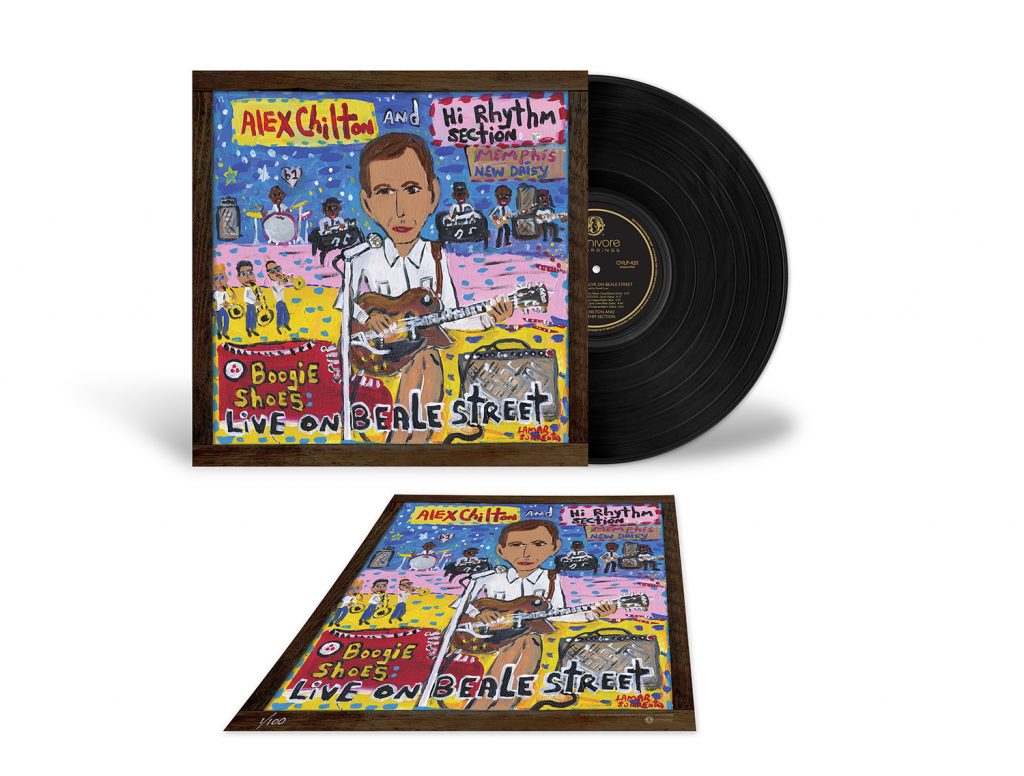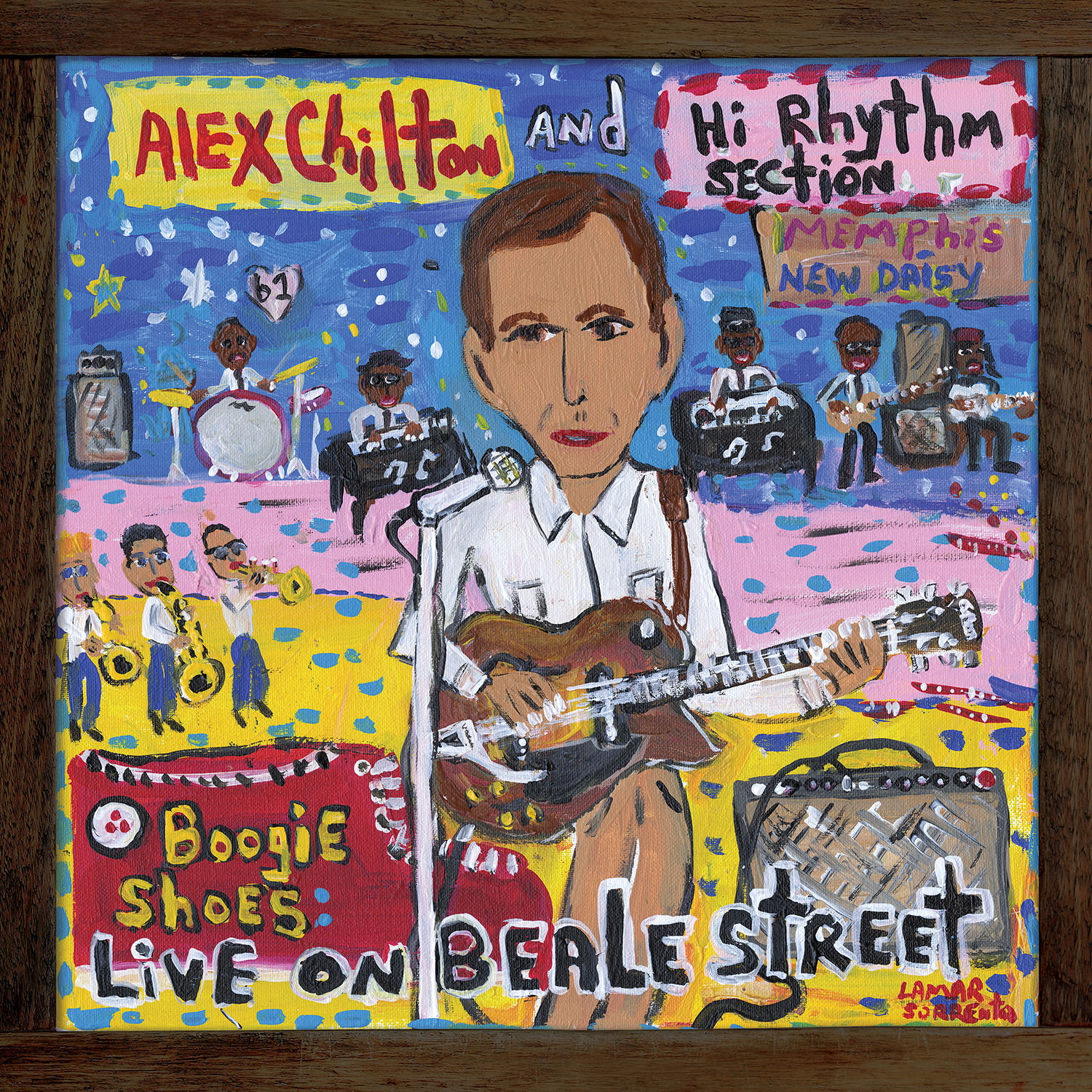The Troubled Men podcast, co-hosted by bassist, arranger and long-time Alex Chilton sideman René Coman, once devoted an entire episode to Chilton. In it, Coman, drummer Doug Garrison, and guitarist/singer ‘Johnny’ Jay Beninati reminisce about the unique qualities of the late performer and producer, who made history with the Box Tops, Big Star and as a solo artist.
“He had this way of of looking at a song. He could find a certain, core part of the song and re-characterize it in his own way. And that made it a whole new song. And that’s a talent in itself.” – Jay Beninati
Regarding his involvement with Big Star: “I got the impression that Alex felt that was another person, that was another identity. He didn’t identify with it anymore. When he came to New Orleans, it was a whole bootstrap operation of him remaking himself. He was like, ‘[Big Star] was another day, and that’s not what I’m into. I’ll do it because people want to hear it, but really I’m interested in R&B, soul and blues.'” – René Coman
“He enjoyed doing those oldies shows, where he would go and do Box Tops gigs. And interestingly, he never used ‘the Box Tops voice.'” – Doug Garrison
These serve as three points for plotting the sometimes inscrutable, always eclectic aesthetic choices Chilton made, especially as he began living the second half of his life with more intention away from Memphis. Part of that was his embrace of cover songs, both popular and obscure, paired with his love of the spontaneous.
Both of those passions came to the fore during his solo years, partly because he often surrounded himself with versatile jazz players who could turn on a dime. Yet that sensibility may have reached its highest expression with a band he never played with, during a one-off gig where he simply called out the set list as he went. It didn’t hurt that those players, too, were stellar.
Thankfully that moment was documented, and will soon be available in Omnivore Recordings’ upcoming release, Boogie Shoes: Live on Beale Street, by Alex Chilton and the Hi Rhythm Section, due out on May 7.
It all came about in 1999, when Fred Ford, legendary Memphis saxophonist and co-founder of the Beale Street Music Festival, was diagnosed with cancer. David Less organized Fredstock, a fund raiser to help with his medical bills, and contacted Memphis legend Alex Chilton in New Orleans, to ask him to participate. When Chilton said he didn’t have any musicians to play with in Memphis, Less suggested the Hi Rhythm Section (the band behind classics from the likes of Ann Peebles, Ike & Tina Turner, O. V. Wright, Otis Clay, and Al Green). Chilton replied, “That will work.”

This previously unissued live set contains versions of soul, rock and blues classics, sung with Chilton’s inimitable panache and the rock steady rhythm section behind thousands of soul hits, recorded at the New Daisy Theater during Fredstock in 1999.
And in his own offhand way, Chilton may have helped create one of the greatest moments of what was once called “blue eyed soul.” Of course the Box Tops are considered prime examples of the genre, but, as Doug Garrison’s quote above implies, Chilton’s true soul emerged later in his life, when he sang in a less affected voice.
While he’s not above throwing a playful twang in the mix, as with his laid-back delivery of Jimmy Reed’s “Big Boss Man,” or when he sets a belter like “Lucille” in a high enough key to bring out his inner adenoidal teen, what we hear, as on other post-70s works by Chilton, is his raw voice, unadorned and stark. None of the guttural melodrama of so many blue-eyed-soul singers is in evidence here; rather, these gems of the 50s, 60s, and 70s are recast by Chilton’s reedy, even nerdy, yet always pure singing voice, au naturel.
Behind his singing and razor-sharp guitar playing, Chilton enjoys what may be the greatest backing band of his career: Mabon ‘Teenie’ Hodges, Charles Hodges, Leroy Hodges, Archie ‘Hubbie’ Mitchell and Howard Grimes play effortlessly and with the relentless drive that shaped so many hits for Hi Records. They’re complimented perfectly by a horn section featuring Scott Thompson, Ronald Kirk Smothers and Jim Spake, the latter having joined many a Chilton tour in the 80s.
Perhaps because of Spake’s knowledge of Chilton’s preferences, the horns come up with parts on the spot that suit every song perfectly. And, as the songs spontaneously come together, the glee in Chilton’s voice is palpable.
By the time the band closes with Otis Clay’s “Trying to Live my Life Wihout You,” Chilton is so enthused he starts egging the band on. “That sounds so good! Play it again!” he yells after the intro, so they play it twice.
Perhaps producer and author David Less captures the spirit best:
“I never saw him have so much fun on stage. Without rehearsal, Alex called songs and the band locked in. The horn section consists of top Memphis session guys who huddled together when each song was called creating parts on the fly. The pure joy of playing this music so freely with such legendary musicians comes across in every groove of the record.”
Omnivore will also offer a limited edition bundle featuring the LP and a numbered print of the album cover. This special edition, limited to 100 copies, is only available only from the OmnivoreRecordings.com web site.
